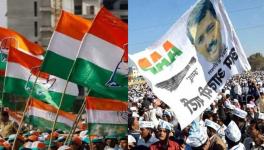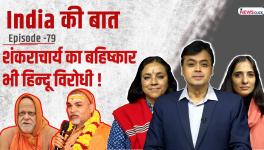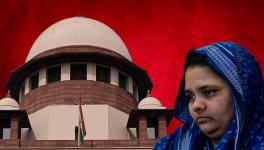Trump and Modi, Friends Without Benefits
During Donald Trump’s impeachment the phrase “quid pro quo” became commonplace parlance. It means, literally, “something for something”. [Quo is the ablative singular form of quid.] According to the Oxford English Dictionary, when quid pro quo is used nowadays as a noun, its meaning is exactly what we tend to think: “The action or principle of giving one thing in return or exchange for another” especially “as part of a bargain.”
The grammar curmudgeons among us are scratching their heads to ask if Modi and Trump’s relationship is one of quid pro quo? Not really.
Before Trump, Modi was ‘friends’ with Obama
When Modi was first elected prime minister of India in 2014, it was US president Barack Obama who overturned Modi’s visa ban and paved the way for his red carpet welcome to the United States. Suddenly, Modi’s record in Gujarat—which had led to the ban in 2005—was not too odious and he was invited to address a joint session of United States Congress, which he did in June 2016.
Obama ultimately visited India twice to meet Modi, becoming the only American president to have visited India twice in two years, including once as Modi’s chief guest at the Republic Day parade.
What did it take for Modi to clear his record? According to reports at the time, Modi assured Obama that he was committed to further liberalising India’s economy. During his White House visit in 2014, Modi repeated his promise to “cut red tape, develop infrastructure and make it easier for companies to do business in India”, according to a BBC report at the time.
A suggestive wink in the direction of pro-market policies was all it took to slough off a treacherous record of anti-Muslim violence. In exchange, Obama set to work rehabbing Modi as an important partner in global economic and security alliances. In 2015, White House aides told Politico they were not worried that Obama’s embrace of Modi would create a situation similar to that with then Egyptian President Mohamed Morsi, whom the Obama administration warmly embraced before distancing itself, or Turkish President Recep Erdogan, whom Obama exalted as a model leader, before Erdogan set to work cracking down on anti-government protesters and journalists.
In a June 2016 article The New York Times reported this about Obama and Modi, “The two have a public warmth—or chemistry, as the Indian news media like to describe it—and that is likely to be on display this week when Mr. Modi visits the White House for the second time in two years.”
During this and subsequent meetings, India received assurances from Obama that American companies will supply India with civilian nuclear technology and relax immigration rules allowing spouses of H1B visa holders to work legally in the United States and, in return, Modi assured Obama of his willingness to sign the Paris agreement on climate change and reduce India’s carbon emission. The chemistry seemed to have produced tangible results for both countries.
With Trump it is ‘different’
In a May 2019 interview with Rajat Sharma of India TV Modi spoke of both President Obama and Trump endearingly, but his message was clear. While he enjoyed a warm relationship with Obama, with Trump Modi said, it was “different”. Trump introduced him to his family, gave him a personal tour of the White House, and in a particularly baffling comment, Modi claimed Trump could tell him about United States history (from the crucial period when Abraham Lincoln was president and the American Civil War took place) without referencing a single note card. A wide-eyed Modi said to Sharma, “He spoke all from his memory.” While American historians have lamented Trump’s misuse—or use of falsities—about historical facts, Modi seemed to be in awe.
While Trump made an accommodating gesture towards Modi by specially flying in and introducing him at the “Howdy, Modi” rally in Houston in September 2019, Trump was clear in his speech that evening about his priorities and his hard stance against immigration [Indians now comprise the fourth largest group of illegal immigrants to the United States, many overstaying temporary non-immigrant visas, and second largest legal immigrant population].
Trump made no concessions in the H1B visa crisis that has impacted large number of Indian residents or how his government has made it hard to receive immigrant family and student visas. Yet Modi was more than eager to endorse Trump for the 2020 elections when he followed Trump’s speech with the slogan, “Abki Baar, Trump Sarkar.”
If recent news reports are to be believed, Trump’s visit to India will be marked by a variety of trade deals though nothing has been officially announced. There are talks of India purchasing 24 Seahawk helicopters at a cost of $2.6 billion; this on top of the $17 billion military hardware India has agreed to purchase since 2017. Modi has also offered to cut tariffs on varied farm products including chicken legs, turkey, blueberries and cherries, and is reported to be offering to allow some access to India’s dairy market with a 5% tariff [India, the world’s largest milk-producing nation, has restricted dairy imports to protect the livelihoods of 80 million rural households]. Modi’s government has offered to lower its 50% tariffs on very large motorcycles made by Harley-Davidson, a tax that was a particular irritant for Trump, who had then labelled India the “tariff king.”
Trump has tweeted about his trip to India but remains silent as to what he brings to the table during his visit.
Modi’s quixotic rhetoric aside, there is really no evidence of a quid pro quo. It seems that during Trump’s tenure as president—however servile Modi presented himself to be—Trump has absolutely made no conciliatory gestures, in trade, policy or immigration to India. While he publicly speaks of Modi in a complimentary manner and plans to attend a rally in Modi’s home state of Gujarat, there is no evidence of bilateral cooperation.
It seems that Modi is offering India’s public wealth and farmer’s livelihood to someone whom he considers a close friend—a friend without benefits.
The author teaches at the Department of Communication Studies, State University of New York, Plattsburgh. The views are personal.
Get the latest reports & analysis with people's perspective on Protests, movements & deep analytical videos, discussions of the current affairs in your Telegram app. Subscribe to NewsClick's Telegram channel & get Real-Time updates on stories, as they get published on our website.
























